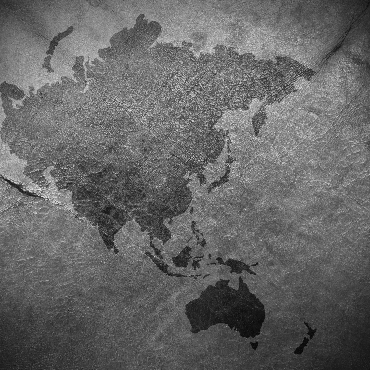Welcome to the third issue of the Indo-Pacific Monitor, the American Foreign Policy Council's newest e-bulletin. Edited by AFPC Fellow in Indo-Pacific Affairs Michael Sobolik, the Indo-Pacific Monitor is designed to track economic, political, and security developments in the Indo-Pacific region. You will continue to receive one more issue of the Indo-Pacific Monitor via this list. Should you wish to subscribe to the Monitor directly, please click here, and it will email us your request.
PAKISTAN PROTECTS ITS OBOR STAKE
According to investigators in Pakistan, 629 Pakistani girls and women have been sold as brides to Chinese men and taken to China. Instead of breaking up the trafficking ring, Pakistani government authorities appear to be avoiding the issue. It also appears that Pakistani police are obstructing investigations by bribing or threatening women into remaining silent. Two months ago, a court in Faisalabad, Pakistan's third most populous city, acquitted 31 Chinese nationals involved in human trafficking. In a separate case, 21 Chinese nationals suspected of bride trafficking were granted bail and allowed to leave the country. At risk for Pakistan is its $75 billion investment corridor linked to China's One Belt, One Road (OBOR) initiative. (Associated Press, December 7, 2019)
BEIJING ANGLES FOR FOREIGN FUNDS FOR ITS REPRESSION
Heads turned when news broke four months ago about the World Bank's decision to approve $50 million loan to Xinjiang provincial authorities for "technical and vocational education." The fact that Chinese Communist Party (CCP) officials are running "reeducation camps" throughout Xinjiang and interning Uyghurs and other ethnic Muslims should have raised concerns within the World Bank, and the U.S. Congress sent prompt inquiries. This month, follow-up reporting revealed that Xinjiang officials attempted to use World Bank funding to procure facial recognition technology, the CCP's primary provincial tool for surveillance and behavioral control. The organization is facing new inquiries from Washington, its largest contributor, including legislation from Sen. Chuck Grassley (R-IA) that would obligate the United States to oppose further loans to China. (Axios, December 11, 2019)
NORTH KOREAN MISSILES PUT PRESSURE ON THE U.S.
In efforts to placate Kim Jong-un and revive stalled denuclearization negotiations, U.S. diplomats blocked an effort at the United Nations last week to convene a meeting on the human rights situation in the Democratic People's Republic of Korea (DPRK). North Korea's UN ambassador, Kim Song, had previously indicated that the North Korean leader would view such a meeting as "another serious provocation" and that North Korea would "respond strongly to the last." Overshadowing these warnings are recent suggestions from Kim himself that the United States is running out of time to offer credible assurances to his regime. Earlier this year, Kim indicated that he would consider resuming missile tests in 2020 if he was unsatisfied with the negotiations. (Time, December 9, 2019)
[EDITOR'S NOTE: As the U.S. moves further into the 2020 presidential election cycle, Kim's leverage will only increase. President Trump points to the lack of DPRK missile tests as a key foreign policy accomplishment, but Kim possesses the power to invalidate this talking point at will.]
SOUTH KOREA SHOOTS DOWN U.S. BASING UPCHARGE
Last month, Secretary of Defense Mark Esper carried a terse message to Seoul: pay up. In bilateral conversations, Esper relayed President Trump's demand that South Korea increase its share of the costs associated with basing U.S. troops in the country five-fold, to roughly $5 billion, in 2020. Negotiations quickly broke down, and Esper left Seoul without securing a commitment. Other reports suggest that Trump is considering making a similar request of Tokyo as well. At issue is Washington's post-World War II security architecture itself. For decades, the United States has agreed to extend its defense coverage to key allies in exchange for forward-deployed basing privileges in foreign sovereign territory. Trump, however, has consistently diverted from this logic, stating publicly in February that his ultimate goal is to pull all U.S. troops out of South Korea. (USA Today, November 15, 2019)
AMERICA ARMS THAILAND AND VIETNAM
The second leg of Secretary Esper's Asia trip was a stark contrast from the first. Instead of asking for more money, Esper came with offers to deepen America's commitments. In Bangkok, the U.S. and Thailand signed a joint "vision statement" that included further bilateral security cooperation and initiatives to strengthen interoperability. The agreement was more than words, as it followed the U.S. delivery to Thailand of 120 "Stryker" armored vehicles in October. To sweeten the deal, America gifted 23 of these vehicles. In Hanoi, Esper announced that the U.S. would provide a second coast guard cutter to Vietnam to address, in his words, China's "unilateral efforts to assert illegal maritime claims." (Asia Times, November 21, 2019)
Want these sent to your inbox?
Subscribe
